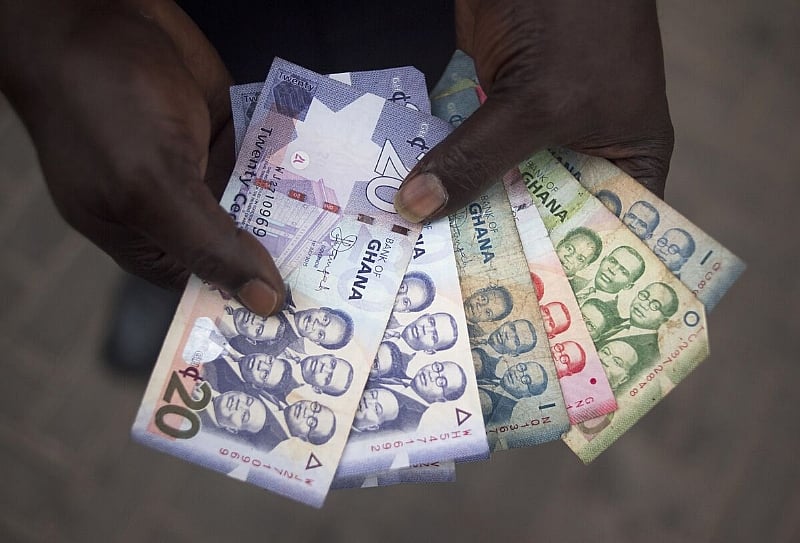The Ghanaian cedi experienced a mixed performance against the US dollar on Thursday, January 9, 2025, showing a slight depreciation in the buying rate and a marginal appreciation in the selling rate compared to the previous day’s averages. Specifically, the cedi weakened by 3 pesewas against the dollar in buying transactions, settling at GHS14.65 per dollar. Conversely, the selling rate saw a 1 pesewa improvement, reaching GHS15.13 per dollar. This fluctuation reflects the dynamic nature of the foreign exchange market and the interplay of various factors influencing currency values. The data, sourced from Cedirates.com, a reputable platform for currency and fuel updates in Ghana, provides a snapshot of the cedi’s performance at 10:00 am on the specified date.
Further analysis reveals variations in the cedi’s exchange rate across different market segments. At forex bureaus, which cater to individual transactions and smaller businesses, the cedi traded at a weaker buying rate of GHS15.30 and a selling rate of GHS15.80 per dollar. This disparity compared to the interbank rates reflects the higher margins charged by forex bureaus to cover their operational costs and profit margins. The interbank market, where larger financial institutions trade currencies, witnessed a buying rate of GHS14.74 and a selling rate of GHS14.76 against the US dollar. This relatively tighter spread between buying and selling rates in the interbank market is characteristic of large-volume transactions and reduced overhead costs.
Beyond the US dollar, the Ghanaian cedi also traded against other major international currencies, including the British Pound Sterling and the Euro. The average buying rate for the Pound Sterling stood at GHS17.99, while the selling rate reached GHS18.77. Similarly, the Euro traded at a buying rate of GHS14.97 and a selling rate of GHS15.66. These rates reflect the relative strength of these currencies against the cedi and the prevailing market conditions influencing their exchange values. The Bank of Ghana’s interbank market reported slightly different figures, with the Pound Sterling selling at GHS18.22 and the Euro at GHS15.21. These variations highlight the influence of different market mechanisms and the specific dynamics of each currency pair.
Remittance services, such as LemFi and Afriex, offer alternative channels for transferring money to Ghana from abroad. These platforms provide competitive exchange rates, often more favorable than traditional banking channels. LemFi facilitated transfers from the US at a rate of GHS14.61 per dollar and from the UK at GHS13.77 per dollar. Afriex offered similar rates, highlighting the competitive landscape of the remittance market and the benefits they offer to individuals sending money to Ghana. For British Pound transfers, LemFi and Afriex offered buying and selling rates of GHS18.15 and GHS17.21, respectively. For Euro transfers, Afriex offered a selling rate of GHS14.35 per euro, while LemFi provided a rate of GHS15.16 per euro. These varying rates reflect the platforms’ specific pricing strategies and the underlying costs associated with international money transfers.
For online subscriptions and international transactions involving Visa and Mastercard, both payment processors offered a US dollar exchange rate of GHS15.80. This rate is typically used for converting local currency payments into US dollars for services like Netflix, Spotify, and Apple Music. This standardized rate provides a consistent benchmark for international transactions and simplifies the payment process for consumers using these platforms.
The overall picture of the Ghanaian cedi’s performance on January 9, 2025, reveals a nuanced interplay of market forces, influenced by various factors including international trade flows, investor sentiment, and domestic economic conditions. The slight depreciation against the US dollar in the buying rate suggests a marginally increased demand for dollars, potentially driven by import requirements or other factors. Conversely, the slight appreciation in the selling rate indicates a relative increase in the supply of dollars, possibly due to export earnings or foreign investment inflows. The variations across different market segments – forex bureaus, interbank markets, and remittance services – underscore the complexities of the foreign exchange market and the diverse channels through which currency transactions occur. The exchange rates for the British Pound and the Euro further reflect the global interconnectedness of currency markets and the influence of international economic events on local currency valuations. The information provided offers a comprehensive overview of the Ghanaian cedi’s performance against major international currencies on the specified date, highlighting the dynamic nature of foreign exchange markets and the various factors influencing currency fluctuations.


